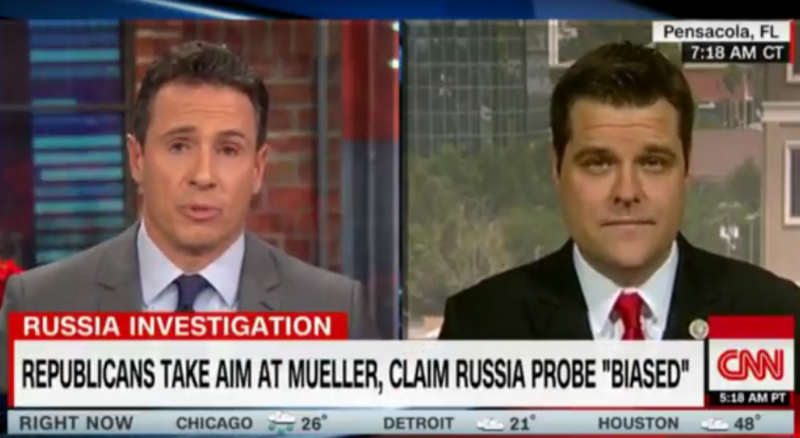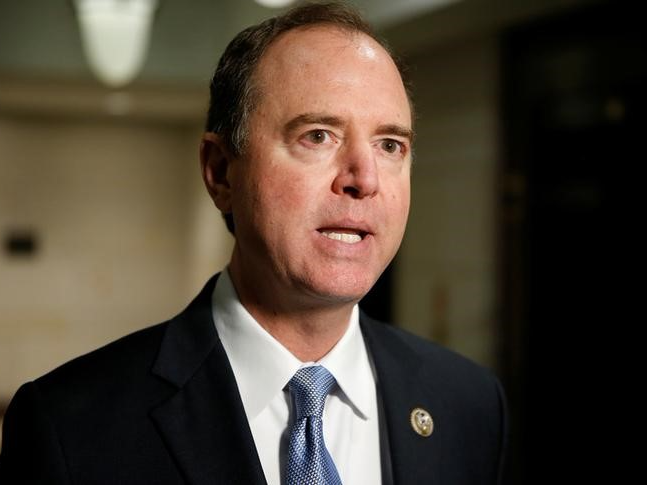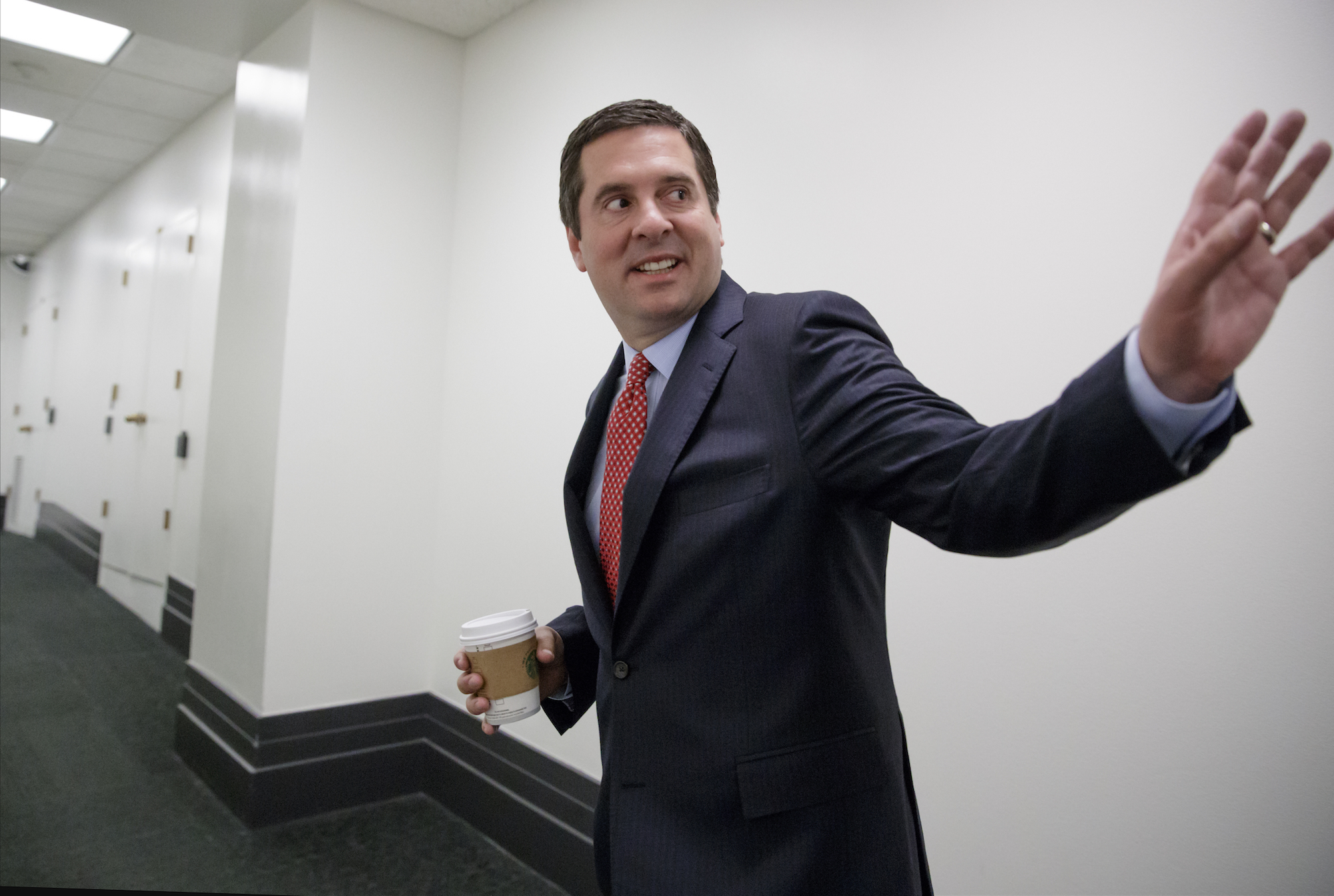- Twitter accounts linked to Russian influence operations have begun promoting the hashtag #ReleaseTheMemo.
- It’s a reference to a document written by Rep. Devin Nunes that purports to show abuse by the Obama administration of the Foreign Intelligence Surveillance Act.
- The frequency with which the accounts have been promoting the hashtag has spiked by 233,000% over the past 48 hours, according to an analysis.
- The most-shared URL has been a link to WikiLeaks’ “submit” page.
Republican lawmakers are pushing for the House Intelligence Committee to release a memo written by the panel’s chairman, Rep. Devin Nunes, that outlines purported surveillance during the transition period against President-elect Donald Trump by former President Barack Obama’s administration.
And Russia-linked Twitter bots have jumped on the bandwagon.
#ReleaseTheMemo is the top-trending hashtag among Twitter accounts linked to Russian influence operations, according to Hamilton 68, a website launched last year that says it tracks Russian propaganda in near-real time.
The frequency with which the accounts have been promoting the hashtag has spiked by 233,000% over the past 48 hours, according to the site. The accounts’ references to the “memo,” meanwhile, have increased by 68,000%.
The most-shared domain among the accounts has been WikiLeaks, and the most-shared URL has been a link to WikiLeaks' "submit" page.
WikiLeaks said on Thursday that it would reward anyone with access to the "FISA abuse memo" who chooses to submit it to the site. The Russia-linked accounts have evidently been sharing the "submit" page to push the memo's release.
#ReleaseTheMemo: Do you know someone who has access to the FISA abuse memo? Send them here: https://t.co/cLRcuIiQXz
WikiLeaks will match reward funds up to $1m sent to this unique Bitcoin address: 3Q2KXS8WYT6dvr91bM2RjvBHqMyx9CbPMN
or marked 'memo2018': https://t.co/lmsmphuH2N pic.twitter.com/j1YEkXqi2S
— WikiLeaks (@wikileaks) January 19, 2018
Hamilton 68 has been working to expose trolls - as well as automated bots and human accounts - whose main use for Twitter appears to be an amplification of pro-Russia themes. The site's mission is to monitor and illustrate the themes that Russian President Vladimir Putin wants Americans to be thinking and talking about, including "the failure of democratic governance in the United States."
Bret Schafer, a communications coordinator at the German Marshall Fund's Alliance for Securing Democracy who tracks the Hamilton 68 accounts, said he "certainly can't remember" the last time the researchers had seen a topic "promoted to this level" by the Russia-linked bots and trolls.
"On a normal day, our top hashtag is typically used around 400 times in a 48-hour period by the network we track," he said in an email on Friday.
"As of right now, #ReleaseTheMemo has been used over 3,000 times (and five other related hashtags are in the top 10)," he said. "In total, they've easily shared more than 4,500 hashtags on the topic in the past two days, and our top URL is Assange's offer to pay for a copy of the memo. That certainly seems to be a sign of a coordinated effort by the bots and trolls."
Mueller's top critics want the memo out

Several Republican congressmen - many of whom have been highly critical of the special counsel Robert Mueller, the FBI, and the investigation into Trump's ties to Russia - have released statements calling on the House Intelligence Committee to declassify and release Nunes' four-page memo.
The executive branch would have to review the document before it could be released to the public, but "this could happen real quick," Rep. Jim Jordan told Fox News on Thursday. "Chairman Nunes is committed to getting this information to the public."
The document purportedly describes classified information Nunes obtained from the FBI and Justice Department as part of his investigation into whether the Obama administration misused the Foreign Intelligence Surveillance Act to spy on Trump and his associates during the presidential transition.
"The House must immediately make public the memo prepared by the Intelligence Committee regarding the FBI and the Department of Justice," said Rep. Matt Gaetz, a Florida Republican who has called on Mueller to resign. "The facts contained in this memo are jaw-dropping and demand full transparency. There is no higher priority than the release of this information to preserve our democracy."
Rep. Ron DeSantis, who has introduced legislation that would curtail Mueller's mandate and budget, said in a statement on Thursday that "the classified report compiled by the House Intelligence is deeply troubling and raises serious questions about the upper echelon of the Obama DOJ and Comey FBI as it relates to the so-called collusion investigation."
'A profoundly misleading set of talking points'

Democrats, meanwhile, have called the Nunes memo grossly exaggerated and misleading.
"The Majority voted today on a party-line basis to grant House Members access to a profoundly misleading set of talking points drafted by Republican staff attacking the FBI and its handling of the investigation," Rep. Adam Schiff, the panel's top Democrat, said in a statement on Thursday.
"Rife with factual inaccuracies and referencing highly classified materials that most of Republican Intelligence Committee members were forced to acknowledge they had never read, this is meant only to give Republican House members a distorted view of the FBI," Schiff continued.
A source with knowledge of the memo told Business Insider that it was "a level of irresponsible stupidity that I cannot fathom," adding that it "purposefully misconstrues facts and leaves out important details."
Schiff said the document "may help carry White House water, but it is a deep disservice to our law enforcement professionals."
Nunes began investigating the Justice Department and FBI after he traveled to the White House to view classified information in March without telling his committee colleagues. There, he viewed classified information that he said showed FISA abuse by Obama administration officials.
Nunes would neither confirm nor deny that he got the information from the White House.
"We have to keep our sources and methods here very, very quiet," he told reporters at the time. He told Bloomberg later that the information had come from a "network of whistleblowers."
Nunes briefed Trump on the intelligence, which Nunes said showed that the president and his advisers may have had their communications "incidentally collected" - and their identities "unmasked" in intelligence reports - by the intelligence community after the election.
A source of concern has been why some of Trump's associates who had been caught up in the surveillance and later unmasked, such as Michael Flynn, the former national security adviser, had their names leaked to the press.
But Republican and Democratic congressional aides told reporters in early April - after being briefed on the classified reports - that Obama administration officials did not act inappropriately.
Indeed, the committee under Nunes' leadership made at least five unmasking requests to US spy agencies between June 2016 and January 2017 related to Russia's election meddling, The Washington Post reported last year.
The report came days after Nunes, who would have had to sign off on any committee requests to reveal the identities of US persons mentioned in intelligence reports, called unmaskings "violations of Americans' civil liberties."

